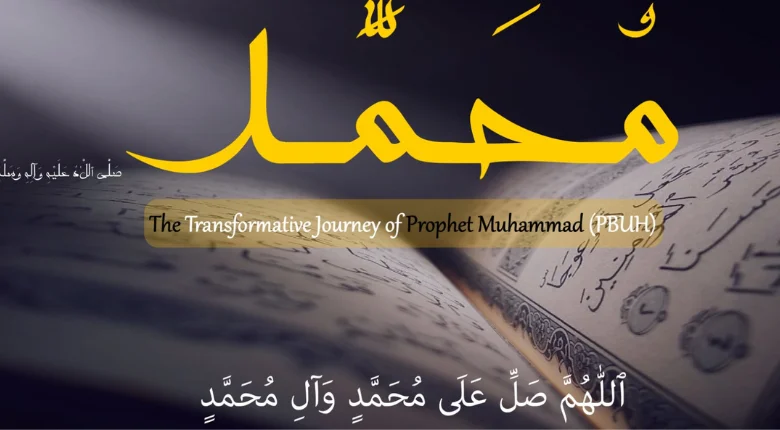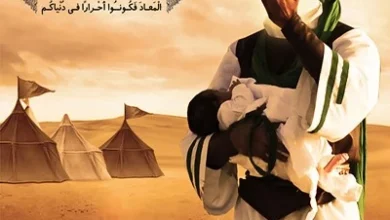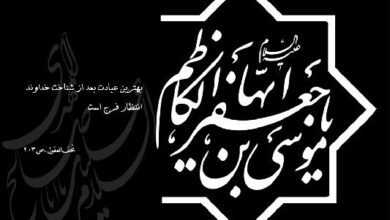The Transformative Journey of Prophet Muhammad (PBUH)

The life of Prophet Muhammad (PBUH) is a source of inspiration and guidance for millions of Muslims around the world. From his birth to his death, there were several important incidents that shaped his life and had a lasting impact on the Islamic faith and the world at large. In this article, we will explore some of these significant events and their significance.
The Revelation of the Quran Upon Prophet Muhammad(PBUH)
One of the most significant events in the life of Prophet Muhammad (PBUH) was the revelation of the Quran. According to Islamic tradition, the angel Gabriel appeared to Muhammad in a cave near Mecca and began reciting verses of the Quran to him. This event marked the beginning of Muhammad’s prophethood and the start of the Islamic faith. The Quran is considered the holy book of Islam and is believed to contain the word of God as revealed to Muhammad. Its teachings and principles have had a profound impact on the lives of Muslims throughout history.
Quraysh Dislike Prophet Muhammad and Its Effects
As the number of Muslims grew, the leaders of the Quraysh became more worried about it. They went to the Prophet Muhammad’s uncle and guardian, Abu Talib, and asked him to stop his nephew from continuing the prophetic task he had begun.
They asked him to hand over Prophet Muhammad (pbuh) so they could kill him, and in exchange, they gave Abu Talib responsibility for Ammara b. They thought al-Walid was a beautiful and smart young man. Abu Talib replied, “Shall I give you my son so you can kill him and raise your son? What a hard thing to do!”
The Quraysh could not hurt the Prophet Muhammad (pbuh) because of tribal customs. If they did, they would start a war with Banu Hashim, and other tribes would get involved, making the situation too hard to handle. Instead, they insulted him and gave him minor injuries to show they didn’t like him. However, they would harass other new Muslims because they did not have the same protection.
The conflict got worse, so the Quraysh chiefs went to Abu Talib again and asked him to stop his nephew from going down the path he was on. Abu Talib told the Prophet (s) about their request, and the Prophet (s) said, “By God, I swear that even if the sun were put in my right hand and the moon in my left, I would not give up my mission.” Abu Talib said, “Then go on your mission, and I won’t let them hurt you.”
Muslim people to move toward Abyssinia
As the number of Muslims grew, so did the Quraysh’s hatred of them. Hazrat Abu Talib (as) protected the Prophet (pbuh), so the Quraysh could not hurt him. However, they could hurt his followers as much as they wanted because they had no protection.
This hurt the Prophet Muhammad (pbuh) a lot, so he told them to move to Abyssinia so they could practice their faith freely. He told them, “There is a king there who harms the Muslims.” “Go there and stay there until God frees you from the trouble here.” When the Quraysh heard about this, they sent ‘Amr bin. al-‘As and ‘Abd Allah bin. Abi Rabi’a to the king of Abyssinia to ask him to send the Muslims back to Makkah.
When the Quraysh saw that Islam was spreading in Mecca and that the king didn’t hand over the newcomers, they decided to put Prophet Muhammad and his followers under severe economic sanctions.
They did this by writing a treaty that said nobody could marry any of the children of Hashim or ‘Abd al-Muttalib and that nobody could sell or buy anything from them. They then hung this decree in the Ka’ba (as a sign of its great obligation).
The sanctions lasted two or three years. During this time, the Muslims lived in extreme difficulty. A couple of their relatives would smuggle wheat or other essentials to them so that they could have the bare minimum.
One night, Abu Jahl, who was a bitter enemy of Banu Hashim, was informed of this and stopped Hakim bin. Hazam from bringing wheat to Khadija. Others interfered and criticized Abu Jahl for the severity of his actions.
Eventually, some of the Quraysh felt guilty and chose to side with Banu Hashim. They wondered why Banu Makhzum should live an easy life while the children of Hashim and ‘Abd al-Muttalib should live in difficulty.
Thus, they decided to end the treaty. And some of those who had signed it decided to tear up the treaty. Ibn Hisham narrates from Ibn Ishaq that when they went into the Ka’ba, they saw that termites had miraculously eaten the treaty and that only the phrase “Bismik Allahumma” [in Your name, O Allah] had remained of it.
Ibn Hisham narrates that Hazrat Abu Talib (as) went to a meeting of the Quraysh and said: “Prophet Muhammad says that termites have eaten the treaty and that only the name of God remains. See for yourself, and if he is right, end the boycott. If he is lying, I will hand him over to you”.
When they went to look at the treaty, they saw that termites had eaten everything but the part that said “God.” This is how the ban on Banu Hashim was lifted, and Banu Hashim left the valley.
The Trip to Ta’if
Soon after the Prophet (pbuh) left the valley, Hazrat Khadija and Hazrat Abu Talib died. With Hazrat Abu Talib’s death, the Prophet (pbuh) lost one of his most important supporters and protectors. Polytheists took advantage of his death to harass the Prophet Muhammad (pbuh) and Muslims.
The Prophet Muhammad’s (pbuh) efforts to convert people around Makkah, especially in Ta’if, were not successful, and he went back to Makkah disappointed.
What was important When Prophet Muhammad (s) was alive in Makkah Before Islam
569–70: ‘Abd Allah (Father) is born; he dies.
576: Amina bt. Wahb (Mother) Dies
578 ‘Abd al-Muttalib’s (Grandfather’s) Death
583: Trip to Damascus for Business
595 Marriage to Khadija bt. Khuwaylid
Islam
610: Baesat and the start of being a prophet
613. Yawm al-Dar and Open Call
614: The Quraysh was meant to Muslims
615 Lady Fatima’s Birth (a)
615: A Group of Muslims Leave Their Country
to Ethiopia
615: Banu Hashim is blocked off.
Shi’b Abi Talib
618-9: End of Banu Hashim’s Blockade
Shi’b Abi Talib
619: The year of sadness, Abu Talib’s death
and Khadija bt. Khuwaylid
620 Mi’raj
621. The First Promise of al-‘Aqaba
622: The Second Promise of al-‘Aqaba
622: Muslims start moving to Medina




